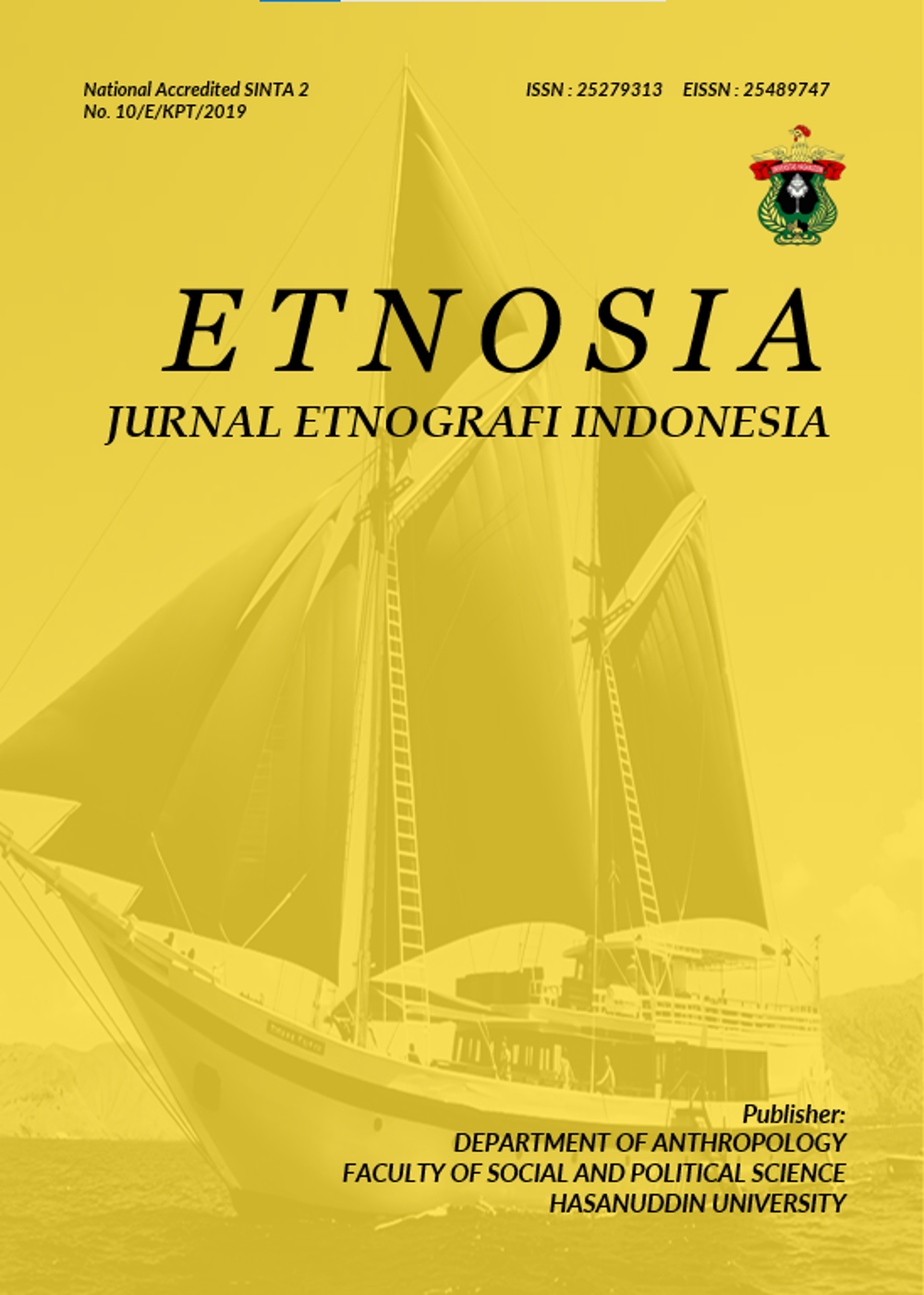Abstract
This article aims to introduce the Extended Case Method (ECM) as an approach to qualitative social research. As an approach, the ECM rooted in the ethnography approach in the anthropological tradition and developed in the sociological tradition research. With reference to Michael Buroway (1998) as a developer of ECM and some articles that used ECM as a method, this paper outlines the basic concepts of ECM, their advantages and infirmity, and the application of theories in social research by using ECM. As an extended case, there are four aspects that extend on ECM, namely intervention, processes, structuration, and reconstruction (theory). The advantage of ECM is their four extending. Rather than the infirmity of ECM rooted from their advantage, namely domination, silencing, objectification, and normalization. The use of theory in ECM was carried out from the beginning to the end of the study. Base on their characteristics, ECM very feasible to use to understanding borderless society and ambiguity of case study on research of social science in general, and ethnography especially.References
Abdullah, I. (2006). Dari Bounded System ke Borderless Society: Krisis Metode Antropologi dalam Memahami Masyarakat Masa Kini. Jurnal Antropologi Indonesia, 30(2), 185–192.
Achwan, R. (2014). Dua Dunia Seni : Industri Kreatif Fesyen di Bandung dan Bali. Jurnal Sosiologi Masyarakat, 19(1), 57–75.
Burawoy, M. (1998). The Extended Case Method. Sociological Theory, 16(1), 1–33.
Burawoy, M. (2009). The Extended Case Method: Four Countries, Four Decades, Four Great Transformations, and One Theoretical Tradition. London: University of California Press.
Creswell, J. W. (2010). Research Design; Pendekatan Kualitatif, Kuantitatif dan Mixed. Yogyakarta: Pustaka Pelajar.
Geertz, C. (1973). Interpretation of Cultures. New York: Basic Books.
Geertz, C. (1981). Abangan, Santri dan Priyayi. Jakarta: Pustaka Jaya.
Geertz, C. (1992). Tafsir Kebudayaan. Yogyakarta: Kanisius.
Geertz, C. (1998). After the Fact: Dua Negeri, Empat Dasawarsa, satu Antropolog. Yogyakarta: LKIS.
Gluckman, M. (1961). Ethnographic data in british social anthropology. The Sociological Review, 9(1), 5–17. https://doi.org/10.1111/j.1467-954X.1961.tb01082.x/abstract
Neuman, W. L. (2007). Basic of Social Research; Qualitatif and Quantitatif Approach. Boston: Pearson Education, Inc.
Sullivan, M. L. (2002). Exploring Layers; Extended Case Method as a Tool for Multilevel Analysis of School Violence. Sociological Methods & Research, 31(2), 255–285. https://doi.org/10.1177/004912402237295
Tavory, I., & Timmermans, S. (2009). Two cases of ethnography: Grounded theory and the extended case method. Ethnography, 10(3), 243–263. https://doi.org/10.1177/1466138109339042
Verschuren, P. (2003). Case study as A Research Strategy: Some Ambiguities and Opportunities. International Journal of Social Research Methodology, 6(5), 12–139. https://doi.org/10.1080/13645570110106154
Wadham, H., & Warren, R. C. (2014). Telling Organizational Tales: The Extended Case Method in Practice. Organizational Research Methods, 17(1), 5–22. https://doi.org/10.1177/1094428113513619
Yin, R. K. (2003). Case Study Research; Design and Methods (Third Edit). London: Sage Publication Ltd.

This work is licensed under a Creative Commons Attribution-NonCommercial 4.0 International License.
Copyright (c) 2021 ETNOSIA : Jurnal Etnografi Indonesia





